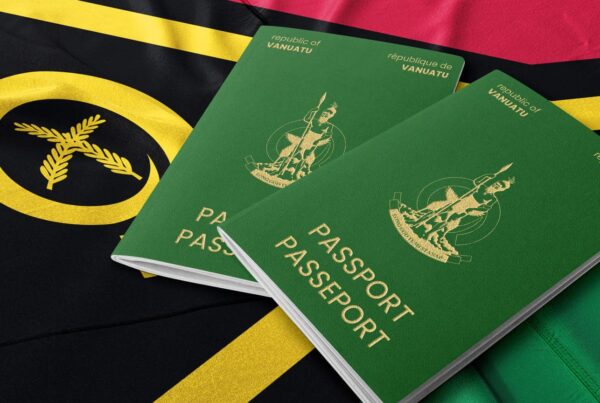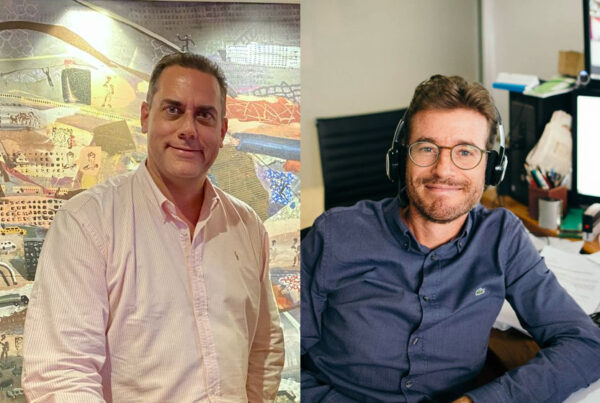By Christina Petru
In a press call on January 12th, the European Union announced that it may look to suspend its bilateral agreement with Vanuatu, which allows citizens of the pacific nation to enter, visa free.
This obstruction—which necessary swerves treaty bounds with Brussels—will not just prevent those born in Vanuatu from free travel.
The re-think by the European Commission is quite clearly intended to exclude investors who had received citizenship by investment, under the program which has brought huge investment from abroad. The 27-state bloc is about to reach a decision on temporary suspension, as authorities in Brussels accuse their partners in Port Villa of lacking the sufficiently “robust” due diligence systems with which to screen potential citizens by investment.
Yet news commentators would be remiss to ignore the consequences which Vanuatu must now suffer—as crucial capital inflow from the passport program suddenly appears uncertain. The European right to citizenship is not just paved with Euros—it is increasingly a road to political destruction, which is also paved with ignominy. The announcement that Vanuatu would face these restrictions came just two days before the Commission’s next puzzling directive.
That was January 14th news that EU members may soon be required to teach environmental sustainability in member states’ school. Had environmental sustainability been taught somewhat sooner, the Pacific state of Vanuatu would not be quite so reliant on a citizenship by investment scheme which is of particular importance—given the economic blight of pollution for countries in the South Pacific.
Brussels’ immediate experience of failed citizenship programs in fellow European member states—including, but not limited, to Malta and Cyprus, at the pricier end of the scale—already attracts press. Others, who hide the cost of citizenship better, are, according to leaked media briefings, already a subject of duress.
The going rate for an Austrian passport is far pricier. Recently departed outlier, the United Kingdom, will still sell a “golden visa” for £2 million pounds, sterling. Vanuatu—which is able to offer at least some of the same privileges—is obviously unpopular. In the benighted, lofty, and imperious old world of citizenship by investment, the Vanuatu scheme offers value for money. Europe’s fight to curtail the scheme is at worst protectionist, and at best redolent of a failure by its own retailers of passports.
Take, for example, the Republic of Moldova, which today appears to have more in common with Vanuatu than one may initially think.
The country’s citizenship by investment program was castigated, dismantled and finished—even before it officially begun—due in its entirety to what Europe termed “the back-door appointment” of a black-ops “marketing agent””.
The responsibility of said “agent”? To collect (and perhaps distribute) funds with no marketing definitions in their contract’s terms.
The nation of Vanuatu has, in my view a citizenship program that is not only suited to the way the government’s fiscal redistribution objectives.
The country’s best practice ideal which puts all applicants through a Designated Agent who presents some initial documents, police clearances and proofs of funds to the Financial Intelligence Unit—panning Interpol and Europe checks—can assist, to assure, that compliance officers at the National Bank of Vanuatu thoroughly verify the source of funds used for the all bills met during necessary checks.
Lest there be doubt, these encompass, but need not exclude, the FIU check. This then leads a document by issued to the Citizenship commission, and if there are no hits or convictions recorded against an applicant.
That applicant may then proceed to make a request that an approval in principle followed by a citizenship certificate, the Program since 2015 received a number of upgrades and processes have been streamlined.
One notable example is whilst the applicant is being processed, an enhanced background check is carried by the Vanuatu National Intelligence unit consisting of Anti-Money laundering unit, Trans Crime Unit, Interpol and National Security Intelligence.
Citizenship of course, is a matter of National Security and admission to Citizenship of a country is a big step which Vanuatu takes very seriously.
This allows Vanuatu to reject applicants before they can apply thus reducing the actual rejection statistics at the level of the Citizenship Commission.
All was going well until Ronald Warsal (Chairman of the Citizenship Commission) made some hasty appointments near the end of 2021 by signing contracts, without the approval of the Council of Ministers, State Law Office or the Tender Board with a little-known company called CS Global Partners and FACT UK whose CEO’s only achievement according to Warsal was his training at the FBI.
Warsal’s naive thinking was the deciding point in hiring maverick agencies to show to the EU that they have now complied with all the requirements.
The Vanuatu Government had voiced concerns and could not be sure whether such external agencies have adequate credentials or data management licences to protect personal data of existing and new citizenship applicants.
Regardless of the fact, the personal data of each and every Citizen who had obtained citizenship by investment is owned and controlled by the Government of Vanuatu and should never be disclosed to third parties let alone third country contractors.
There must be systems in place on how the data is processed and how it is transmitted and deleted after processing preventing misuse and extortion.
Having personal details of Vanuatu floating around the internet could lead the country into some hard litigation.
Warsal continues in his press release to say that all citizenship applications from 2015 would be reviewed by this “uncontracted” in my view third party and decision will be made on cancellation of citizenship if necessary.
This also opens the government for litigation, once citizenship is granted it should not be cancelled or withdrawn, especially in the case where the person would be rendered stateless.
Secondly the cancellation should only be the last resort; instead if the law was breached by say forgery, criminal charges should be applied instead.
I see a big mess of citizenships potentially being cancelled by recommendation of an agency that has no visible citizenship or nationality processing experience, whose basis for cancellation are based on hints and Facebook articles or other sources with questionable reliability.
If the agency hired to carry out personal checks on the citizenship applicants past and present cannot follow the proper guidelines laid out by the Government of Vanuatu in negotiating contracts and following the tender process and accept signature of the Chairman of the Citizenship committee; not realising that only the Minister has authority to bind the Government then something is seriously wrong with the agencies.
the law states that only a minister of state can commit the government to a contract and the authority of the minister to commit is subject to certain procedural requirements being met.
As it is right now the contracts signed by Warsal have not complied with legal processes to be valid nor does he have the legitimate standing to engage in such a contract that commits government.
Insofar as much as the law in Vanuatu is concerned, the GCTA (Government Contracts and Tenders Act) explicitly states that the contracts are null and void and that in this event the person signing the contract is personally liable.
Vanuatu must in its own way commit to the EU to build its own robust system, supervised by the Vanuatu’s National Security intelligence and not insist on hiring EU based firms to create even more havoc.
And while all good governance stems from strong bilateral alliances, with the helpful feedback of a state’s allies, it should be noted that in light of Europe’s own corruption scandals and searing failure to sell citizenship legally, Brussels should lead with better examples. This smacks—yet again—of another example of rich nations bullying smaller, poorer ones.
Dr Christina Carter (nee Petru) Ph.D. is an economist and market analyst who has advised governments, national banks and international lenders in the European Union & the Commonwealth of Independent States (CIS) for several decades. A contributor to U.S News & World, Emerging Europe & the Globe & Mail, Petru’s financial reporting includes specific emphasis on how small economies handle diversification to the new challenges posed by declining trade relationships with the United Kingdom & the pitfalls wrought by climate change. Follow her on Twitter via @christinapetru





